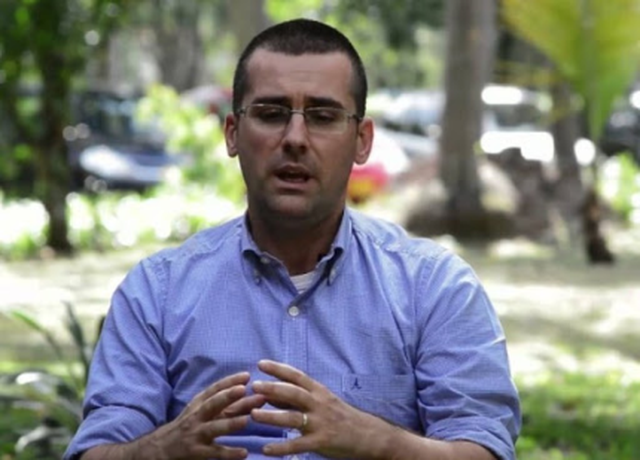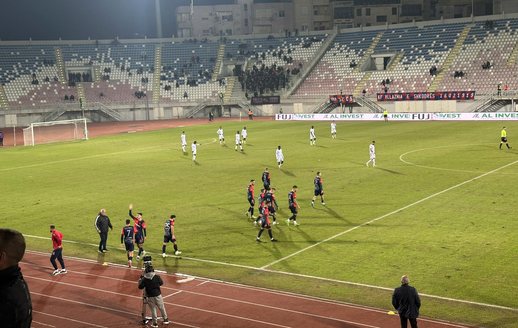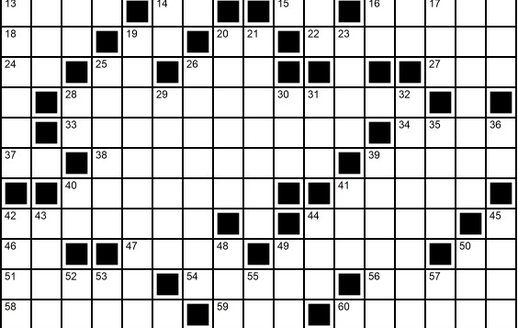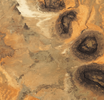
The pharaonic government of Prime Minister Rama


The rule of the pharaohs in ancient Egypt had two characteristics that bring to mind the current rule. First, there was a gulf as deep as it was unbridgeable between Pharaoh who was (almost) god and his subjects who were mere servants of his divine will. Second, the regime often focused on building monumental works that glorified the immortality of the Pharaoh, such as the famous pyramids.
Both of these aspects characterize the governance of Edi Rama today, both in the government and within the Socialist Party. The last congress of the SP served above all to deepen the gap between the leader and his subordinates. It was another pedestal that raised the figure of the leader even higher while lowering the profile of his subordinates even more. The Congress crushed any illusion that in the SP you can have a political career, meritocracy, competition or any democratic and rational political process that can produce figures with political weight outside the will of the boss.
Placing anonymous individuals in key government positions performs two complementary functions. First, it destroys any bud of a career built on merit and political contribution that could make the slightest shadow or resistance to the will of the boss. In this way, the leader privatizes the process of producing political capital that was supposed to be a product of competition and meritocracy. Secondly, and as a consequence, the appointment of political anonymity to key government positions deepens the gap between Rama and his subordinates both in the party and in the government.
Of course, the political gap between Edi Rama and Taulant Balla was quite deep. And yet Balla had, and still has, a political capital of his own within the SP, regardless of the sympathies or antipathies we may have for his political profile.
Meanwhile, the political gap between Ervin Hoxha (the new minister of the interior) and Edi Rama is so cosmic that between them we cannot talk about cooperation but about providing services. In this way, ministers and officials are transformed from collaborators to servants of the prime minister, just as yesterday they were servants of the Sultan or the day before yesterday of the Pharaoh.
I njëjti transformim ndodh edhe me qeverisjen që reduktohet në funksion të glorifikimit të udhëheqësit më shumë se në funksion të nevojave dhe mirëqenies së qytetarëve. Ndonëse programi i rilindjes urbane të qeverisë Rama ka pasur suksese të dukëshme në shumë qytete të Shqipërisë, në Tiranë ai është përdorur për të imponuar dhe përjetësuar vizionin e kryeministrit më shumë se sa nevojat e qytetarëve.
Kullat e larta në Tiranë janë ekuivalenti simbolik i piramidave të faraonëve të Egjiptit. Ato shënojnë “kohën e Ramës” më shumë se nevojat dhe dëshirat e qytetarëve. Ashtu sikurse piramidat e faraonëve dje këto kulla sot shpesh ngrihen në kundërshtim me nevojat dhe dëshirat e qytetarëve. Kullat rrisin në mënyrë artificiale cmimin e metrit katror në Tiranë që nga qendra dhe drejt periferive, duke reduktuar mundësinë e blerjes së një apartamenti sidomos nga ciftet dhe familjet e reja. Ato uzurpojnë hapësirat publike dhe parqet që ishin të aksesueshme për të gjithë duke krijuar hapësira private ekskluzive për atë pakicë që i përballon cmimet e larta të shëbimeve që ofrojnë këto kulla.
E thënë ndryshe, qyetarët tanë sot në qendër duan parqe publike dhe jo kulla private. Problemi është se në një qeverisje faraonike vullneti i tyre është shumë më pak i rëndësishëm sesa përjetësimi historik i vizionit të faraonit. Ndaj nevoja e liderit për të lënë gjurmën e tij historike në fytyrën e Tiranës fshin nevojat dhe dëshirat e qytetarëve.
Ironia është së për historinë trashëgimia më e rëndësishme nuk është ajo materiale por ideore dhe shpirtërore (as Buda, as Jezusi dhe as Muhamedi nuk mbahen mend për tulla). Ndaj nuk është rastësi që ne sot kujtojmë me admirim Perikliun e Athinës, sepse mbrojti dhe zhvilloi idealet e demokracisë, shtetformimit, artet dhe letërsinë, shumë më tepër se faraonin Ramses të Egjiptit, trashëgimia e të cilit është thjesht një grumbull gurësh në formë piramide.
The greatest legacy of the Greeks and Romans is neither the Acropolis in Athens nor the Colosseum in Rome, but the ideals of justice, citizenship, democracy, the republic, the agora and the senate. They are political concepts that have withstood time much more than the walls of the acropolis or the colosseum destroyed by erosion and earthquakes. In their absence, the monuments of Greek and Roman civilization would simply be a pile of ruins and not symbols of European civilization and democracy.
Although the current government constantly talks about the modernization, democratization and Europeanization of Albania, it actually offers the pharaonic government model that is the opposite of the ideals of European democratic government. The reduction of the government and the Socialist Party to instruments of the will and ambitions of the leader may produce wonderful infrastructural results, tall and shiny towers for a minority, but not democracy, equality, dignity and even less sustainable development for the citizen of simple. That's why she can't inspire the current generations, who as a result are constantly leaving, nor those who will come./Lapsi.al
Happening now...

America may withdraw from Europe, but not from SPAK
ideas


Who is the Surrel Rabbit?

The two wrong paths of the opposition with the Ombudsman
top
Alfa recipes
TRENDING 
services
- POLICE129
- STREET POLICE126
- AMBULANCE112
- FIREFIGHTER128
























